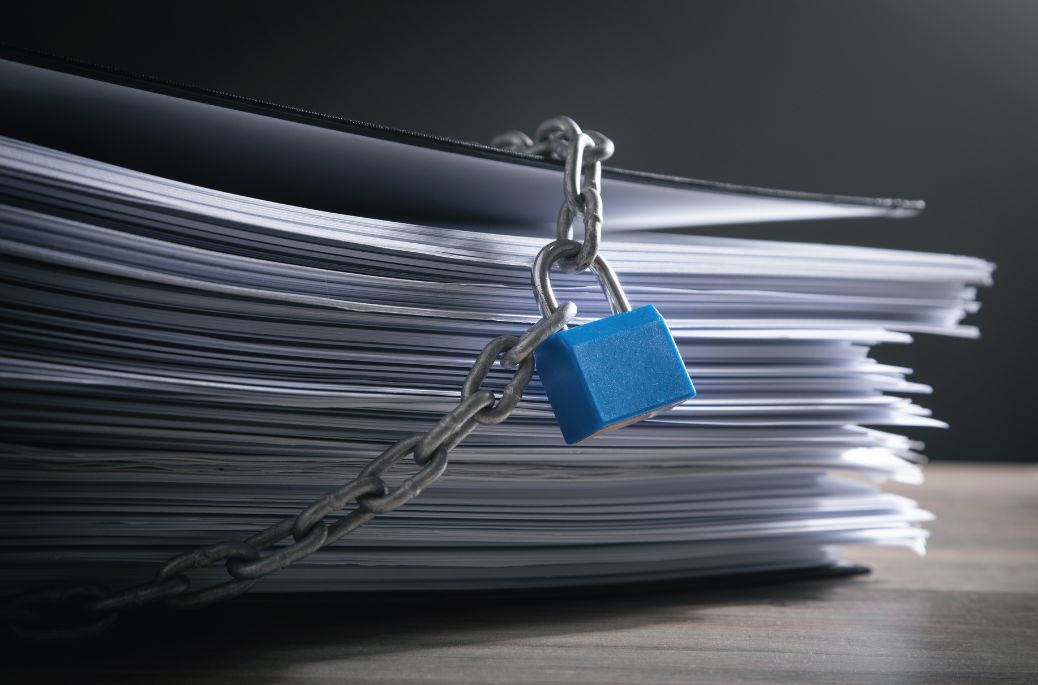Traditional data-sharing methods leave businesses vulnerable to security breaches, lost information, and non-compliance with stringent data protection regulations.
That might include:
- Emails with unencrypted attachments
- Printed documents left on desks
- USB sticks passed between colleagues.
However, under the UK GDPR and the Data Protection Act 2018, firms are legally required to protect personal and sensitive data.
This includes implementing security measures that prevent unauthorised access, ensuring data is stored safely, and keeping accurate records of how information is handled.
Any failure to do so can lead to significant fines, reputational damage, and loss of client trust.
The risks of traditional data-sharing methods
One of the biggest weaknesses in traditional data management is human error.
Sending an email to the wrong recipient, failing to encrypt files, or misplacing physical documents can result in data breaches.
Once sensitive information leaves your hands via an unsecured method, controlling what happens next becomes impossible.
Even paper-based processes, which some firms still use for confidential client information, present major security concerns.
Lost or stolen files, unauthorised access, and improper disposal of documents create compliance risks and potential breaches of UK GDPR.
Cybersecurity threats are also evolving at an alarming rate.
Phishing attacks, malware, and ransomware are now some of the most common ways criminals gain access to confidential data.
Without robust security protocols in place, organisations that rely on email attachments or external hard drives to share client information remain prime targets for cybercriminals.
The alternative is cloud-based security
Cloud-based technology provides a safer and more efficient alternative.
Unlike traditional data-sharing methods, cloud platforms offer:
- End-to-end encryption – Data is encrypted in transit and at rest, meaning only authorised users can access it.
- Role-based access controls – Firms can set permissions to ensure only the right people can view or edit specific information.
- Audit trails – Automatic logs of who accessed what data and when, making compliance easier and security more robust.
- Secure remote access – No need to send sensitive files via email. Cloud platforms allow teams to collaborate securely from anywhere.
If you are still using outdated processes to share and manage sensitive information, it is time to rethink your approach.
Glasscubes provides a secure, UK GDPR-compliant cloud platform designed to protect client data while improving collaboration and efficiency.
Find out how Glasscubes can help your firm stay secure. Click here to learn more.
